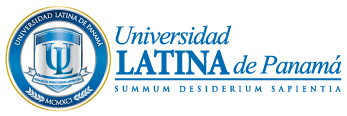Promoción y publicidad farmacéutica como causa principal del uso irracional de los medicamentos / Arlenys Irina Quijada Cruz, Delia Gonzalez
Por: Quijada Cruz, Arlenys Irina [Autor].
Colaborador(es): Morales, Yovany [Director de tesis].
Editor: Panamá : Universidad Latina de Panamá, 2019Descripción: xiv, 136 páginas : ilustraciones ; 28 cm + CD-ROM.Materia(s): MAESTRÍA EN GESTIÓN DE SERVICIOS FARMACÉUTICOS| Item type | Current library | Collection | Call number | Copy number | Status | Date due | Barcode |
|---|---|---|---|---|---|---|---|
 Tesis
Tesis
|
Biblioteca Facultad de Ciencias de la Salud Referencia | Trabajos de Grado | T QV736 Q411 2019 (Browse shelf(Opens below)) | e.1 | Disponible | 2020-0222 |
Proyecto Final de Graduación Presentado como Requisito para optar por el Título de Maestría en Gestión de Servicios Farmacéuticos con Énfasis en Marketing Farmacéutico , en la Universidad Latina de Panamá. -- Página del título.
Tesis. Maestría en Gestión de Servicios Farmacéuticos con Énfasis en Marketing Farmacéutico
. Universidad Latina de Panamá. Facultad de Ciencias de la Salud. Maestría en Gestión de Servicios Farmacéuticos con Énfasis en Marketing Farmacéutico. 2019. Trabajo de grado de Maestría en Gestión de Servicios Farmacéuticos con Énfasis en Marketing Farmacéutico.-- Universidad Latina de Panamá, Panamá,
Background: The pharmaceutical industry at national and international level has its strategies for the promotion and advertising of medicines directly to the consumer, to increase their profits.
Taking into consideration the influence that the promotion, propaganda and advertising of medicines exert on users and their consumption habits, as well as the effect that, consequently, causes on the health systems and the harmful results that can bring individual and collectively to health, it is necessary to improve, expand and define ethical criteria to strengthen the protection of public health and reduce the risks associated with the use of medicines.
Objective: To assess the influence of the promotion and advertising of medicines in the rational use of medicines, identify the techniques used by laboratories and observe the impact on the health and well-being of the patient.
Material and methods: A descriptive, retrospective review of the literature review, of a non-experimental design was carried out. The study included a non-systematic integrative documentary review within which the state of the art was used as the methodological strategy that guided the analysis of the information obtained from the studies.
Results: The selected articles have similar results, considering that the information contained in the advertising pieces does not comply with the regulations of the countries, nor are they consistent with what is established by the WHO ethical criteria for the promotion and advertising of medicines.
In addition, it was found that the most frequently omitted information is related to drug safety.
These studies show that direct advertising to consumers greatly increases their profits, and it is necessary to strengthen the monitoring and control of these activities in order to protect the health of patients by promoting the rational use of medicines.
CONCLUSIONS: For the pharmaceutical industry, investing in advertising is often guaranteeing the consumption of its products, winning customers, positioning a brand and accessing new markets. That said, if advertising encourages consumption, advertising of products such as medicines, which have a direct relationship with health, must demand some responsibility in the messages it transmits. Although countries have regulations that incorporate the WHO Ethical Criteria, advertising messages for patients and health professionals do not comply with these provisions. That is why it is recommended to campaign for patients and health professionals that promote the rational use of medicines.
At the same time, a call for attention is made to the authority so that it can take measures that can control the dissemination of drug advertising irresponsibly
KEY WORDS: medicine, advertising, promotion, pharmaceutical industry, rational use of medicines, regulation.

There are no comments on this title.